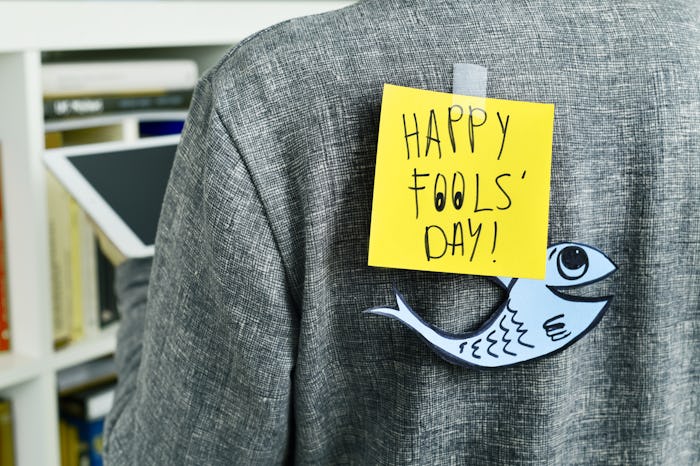News

The Origin Of April Fools' Day
Known as a day to trick your friends, family, and strangers with whatever pranks you wish to play, April Fools' Day is a holiday that is probably equally beloved and despised (there aren't many who fall in between). If you're the prankster, you might not hate it, but if you're the one falling prey to tricks all day long, it might not be your most favorite of days. But how did this day of jokes come to be? The origin of April Fools' Day is difficult to ascertain, but there are some theories.
One theory is that it began in France in 1582 when Christians switched from the Julian calendar to the Gregorian calendar, according to the website for the History Channel. As the story goes, those who didn't hear the news about the calendar change ended up getting their dates wrong and were pranked by having paper fish put on their back to signal that they had been fooled. Additionally, according to The Washington Post, the medieval Catholics in Britain and France both celebrated the "Feast of Fools" on (or around) January 1 with wild carnivals. The Church later banned (or attempted to ban) the celebration in the 15th century, prior to The Council of Trent and the adoption of the Gregorian calendar (named after Pope Gregory XIII himself).
Another theory about the beginnings of April Fools' Day is that it stems from the ancient Greco-Roman holiday, Hilaria, a holiday celebrated on March 25 that used jokes (among other things) to commemorate the coming of Spring and Cybele, a Greek Mother of the Gods, according to TIME. The vernal equinox (which signals the beginning of Spring) was traditionally the beginning of the Julian calendar. Therefore, when those in medieval France switched from the Julian to the Gregorian calendar, the beginning of their year fell on the "wrong" day. I'd imagine this caused a lot of confusion, however it doesn't appear people were all that sympathetic, given the whole paper fish on the back thing.
According to Vox, the first public mention of a day that refers to April Fools came in 1708. At that point, the day was a wide-spread European affair, celebrated with jokes and tricks, fooling whoever was gullible enough to fall for your schemes.
But all these stories may mean nothing. According to the aforementioned article from The Washington Post, The Museum of Hoaxes (an actual museum) claims there is no real evidence that the day now celebrated by playing pranks on your nearest and dearest started with either of these two specific, pinpointed origins. Instead, the museum claims that it simply stemmed from an inherent urge to behave mischievously come spring.
Regardless of how April Fools' Day came to be, the holiday has become a high point for some and a low point for others. Either way, it's a holiday that's sure to get a laugh or two.